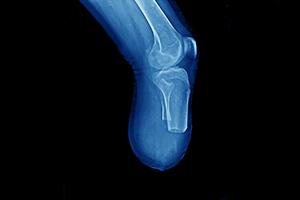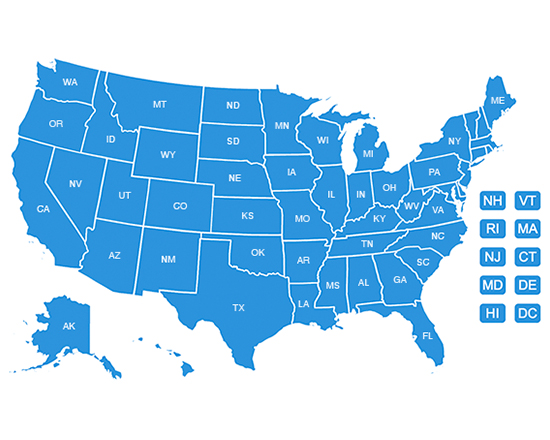The Nursing Home Law Center is committed to providing the legal resources necessary to hold negligent facilities accountable.
Nursing Home Amputation Lawyer

Many seniors move into long-term care facilities when their medical needs outpace their home’s ability to meet them. Rather than healthcare professionals constantly visiting their homes or scheduling in-office appointments, these patients can move into a long-term care facility and have access to that care 24/7.
Nursing homes nationwide must meet professional standards of nursing home care to protect elderly residents and prevent harm from befalling them. However, nursing home abuse and neglect are rampant issues in the industry. There are many causes of nursing home negligence, but one of the worst consequences of neglect is amputation.
This surgical process removes a person’s fingers, toes, limbs, or other extremities. Nursing home amputations are performed when the body part in question cannot be saved and poses a risk to the rest of the patient’s body, such as when there is poor circulation.
If you or a loved one are victims of nursing home neglect, the attorneys at our experienced law firm can help hold facilities accountable.
Causes of Amputation in Nursing Homes
A nursing home amputation is an extreme measure taken to protect a resident’s life. This procedure may be necessary for various reasons, especially if negligence is involved.
For example, if bed sores are not properly maintained or patients don’t attend occupational therapy to increase circulation. Untreated infections, broken bones from dangerous falls, poor circulation from lack of movement, and other forms of physical elder abuse could all result in necessary amputations to save a patient’s life after nursing home neglect occurs.
Negligence Leading to Amputation
Nursing home neglect is a serious issue that happens in facilities across the country. Administrators and nursing staff members must uphold a certain standard of care for all patients and protect their rights. When they fail to do so, they may be guilty of negligence.
In extreme cases, neglect can lead to a declining health condition that eventually requires amputation. Here are a few examples of negligence that could lead to a nursing home amputation procedure.
Untreated or Mismanaged Medical Conditions
Elderly patients are no strangers to medical conditions. Often, they are the reason the patient moved into a nursing home. Nursing home staff must treat medical conditions like diabetes, peripheral vascular disease, and infections to promote a certain quality of life.
Unfortunately, nursing home residents may not receive the treatment they need for these medical condition concerns. As a result, they may develop complications that make amputation necessary.
For example, conditions can impact blood flow, leading to open wounds or a leg amputation if the condition is not properly managed. Leg amputations are common in diabetic patients. This procedure could have been prevented if poor care was never an issue.
Pressure Ulcers (Bedsores)
Pressure ulcers, also known as decubitus ulcers or bedsores, are common conditions in nursing homes. They occur because of prolonged pressure on a certain area of the body, especially joints or bony spots, resulting in poor blood flow to the area.
Once they become open wounds, these pressure sores can become infected. Infected bedsores pose a serious problem for the patient and, if untreated, may require nursing home amputation.
Pressure sores also result in tissue death. The dead tissue slowly spreads, leading to severe complications. The most common cause of bed sores is not being moved. Patients who have limited mobility are considered high risk.
Pressure ulcers are a clear sign of nursing home neglect. Additionally, if nursing home staff were monitoring the high-risk patient, they likely would have spotted the early signs of bedsores and begun treatment.
Falls and Injuries
Nursing home residents face significant dangers when they fall. Falls are one of the most common causes of injuries in nursing homes, and these incidents often happen because of negligent staff.
Falls that occur because of unsafe environments or inadequate supervision can lead to serious injuries that eventually require amputation. These accidents may be caused by staff failing to follow protocols, unattended patients, or unclean premises.
Surgical Errors and Complications
Surgery is an invasive procedure used to correct health concerns inside the human body. Often, these procedures are very delicate, and the slightest mistake can harm the patient’s health. Due to the physical vulnerability of elderly patients in nursing homes, surgeries are risky.
A surgical error or complication could cause a quick degradation of the person’s health, making amputation a necessary solution. Surgeries already require longer recovery periods for nursing home patients, so when amputation becomes essential, their suffering will increase.
Recognizing Signs of Neglect in Nursing Home Residents
Failing to meet a professional standard of resident care is a serious concern, especially if you have a loved one living in a nursing home. Nursing home residents who are abused or neglected may not be able to advocate for themselves.
Family members may be the first line of defense against neglect and a possible nursing home amputation. Here are some warning signs that may indicate your family member is being neglected in a nursing facility.
Changes in Physical Condition
Physical changes are common when someone is abused or neglected in a community setting. If you notice a wound that worsens, this could signify mistreatment. Unexplained nursing home injuries are often associated with nursing home abuse and neglect.
If the person develops an infection, it could be the staff’s fault because they are not caring for the residents. A worsening health condition, such as peripheral vascular disease, could indicate your family member is being mistreated.
Behavioral Changes
Behavioral changes may also occur since improper care can psychologically affect the patient. Be on the lookout for symptoms like withdrawal, depression, or agitation.
If your loved one suddenly stops enjoying activities they usually love, this could indicate they are depressed because of poor care. In severe cases, the individual may develop post-traumatic stress disorder.
Lack of Communication
Communication is key in a nursing home. All staff must be on the same page regarding a specific patient’s care; otherwise, the individual could be neglected. Additionally, administrators and nurses in facilities should communicate with the resident’s family members regarding their care if the resident cannot speak for themselves and the family is in charge of their care.
Legal Rights and Recourse for Victims of Nursing Home Abuse
Every elderly patient in a nursing home has the right to quality care, a dignified existence, and self-determination. When nursing homes violate these rights, they may be guilty of negligence or abuse. Victims of nursing home abuse have the right to pursue legal action against the at-fault institution or staff member. A lawsuit can result in compensation for legal damages.
Nursing Home’s Duty of Care Towards Elderly Patients
One of the most important elements in a lawsuit is the duty of care. This refers to the defendant’s responsibility to protect the plaintiff and prevent harm from befalling them. Nursing homes have a very clear duty of care toward patients.
It is their responsibility to prevent injuries and further complications that may lead to nursing home amputation lawsuits. Otherwise, they can be held liable in these civil cases and be forced to pay settlements to the victims who suffer.
Negligence and Liability
If the nursing home fails to meet the duty of care owed to a patient, it can be liable for negligence. This is considered a breach of duty, which is another critical element in a personal injury lawsuit.
For example, if the staff failed to provide insulin to a diabetic patient, this would constitute negligence since they were expected to treat the patient’s condition during their nursing home stay. Therefore, the staff or institution responsible can be held accountable for negligence in a lawsuit.
Seeking Compensation
The purpose of a nursing home abuse lawsuit is to recover compensation for legal damages. If your loved one suffers an injury or medical condition that may require amputation, there could be numerous legal damages eligible for compensation.
Medical bills, future medical costs, lost wages, emotional distress, pain and suffering, and loss of quality of life could all be cited in your lawsuit to increase the settlement. If your loved one’s amputation leads to their death, a wrongful death lawsuit could include additional damages like funeral costs, loss of financial support, or loss of consortium.
The Role of a Nursing Home Injury Lawyer in Amputation Claims
Elderly amputees will face significant challenges for the rest of their lives. If better care had made that amputation preventable, the institution must be punished for causing all this suffering through negligence.
Pursuing legal action may be intimidating for victims and their families, but it could be the only way to hold the at-fault party accountable. You will stand a better chance of succeeding with your lawsuit if you hire a nursing home injury lawyer for your amputation claim.
Investigation and Evidence Gathering
Lawyers perform several vital functions during the legal process. They will investigate the circumstances of the amputation to determine the facts. This will include gathering medical records, interviewing witnesses, and even consulting exports.
The investigation aims to uncover evidence supporting your claim of abuse or negligence. Although the burden of proof in a civil case is lower than in criminal court, you must still prove that it is more likely than not that the defendant is responsible for your loved one’s suffering.
Negotiation and Settlement
A settlement is the desired outcome of the lawsuit after your loved one’s amputation. The more they have suffered because of a knee amputation or other type of surgery, the larger their settlement may be. The nursing home and its insurance company will do what it takes to undermine the victim’s case and minimize their suffering.
This usually means the first offer is much less than the victim deserves. At this point, an experienced lawyer can make a significant difference in earning fair compensation. They will use their negotiation skills to acquire maximum compensation for their client to ensure all legal damages are covered.
Litigation and Trial Advocacy
Sometimes, a settlement agreement between the plaintiff and defendant cannot be reached. The nursing home or its insurance company may refuse to budge. In that case, the lawsuit may end up in a civil court. During a trial, both sides will present their cases in front of a judge and jury. These impartial parties decide the verdict and what makes a fair settlement.
Navigating this legal process on your own would be very challenging, especially without understanding nursing home or personal injury law. Therefore, you need a qualified legal professional to guide you through the trial for the best chance of success.
Secure Expert Legal Representation!
While not all amputations involve the removal of an entire limb, smaller operations are very serious procedures. It can alter the lifestyle of the patient, and in many cases, amputations are the result of nursing home neglect or abuse.
Whether the amputation in your case was caused by pressure sores, poor circulation from lack of movement, or insufficient treatment of a condition like peripheral vascular disease, you deserve justice for your suffering.
At the Nursing Home Law Center, we care about victims of nursing home abuse and neglect who may be facing amputation concerns. We know what it takes to win a lawsuit and obtain fair compensation for legal damages, and we have recovered millions for nursing home resident clients.
Call us today at 800-926-7565 or complete the online form to request a free consultation with an experienced nursing home neglect attorney.


